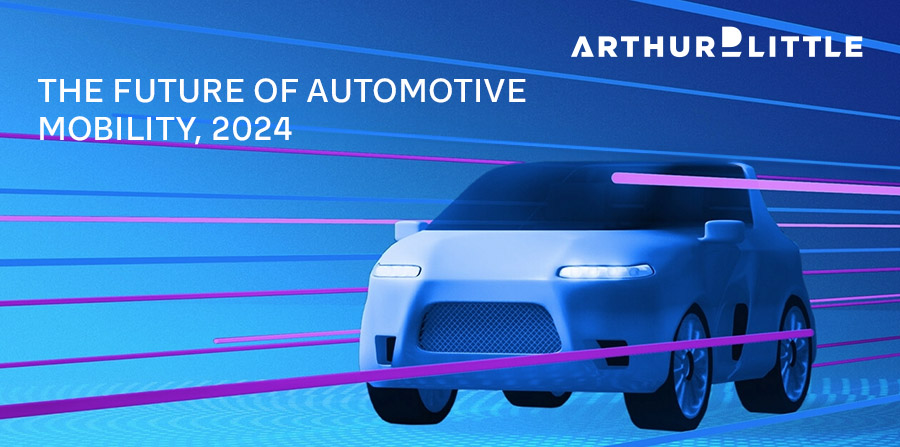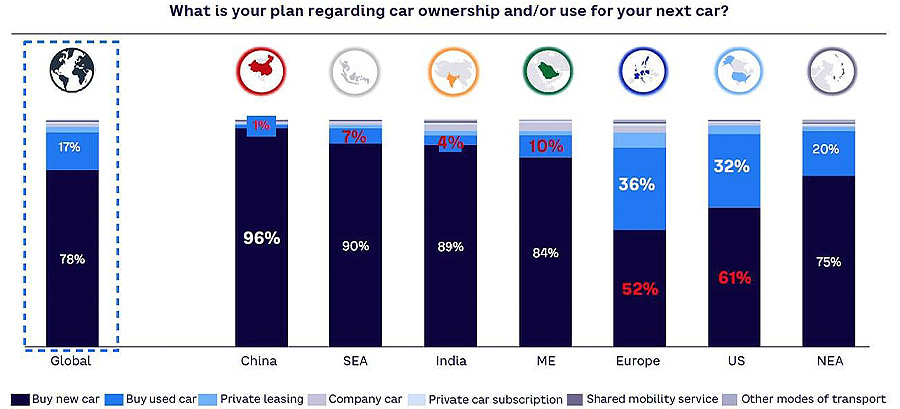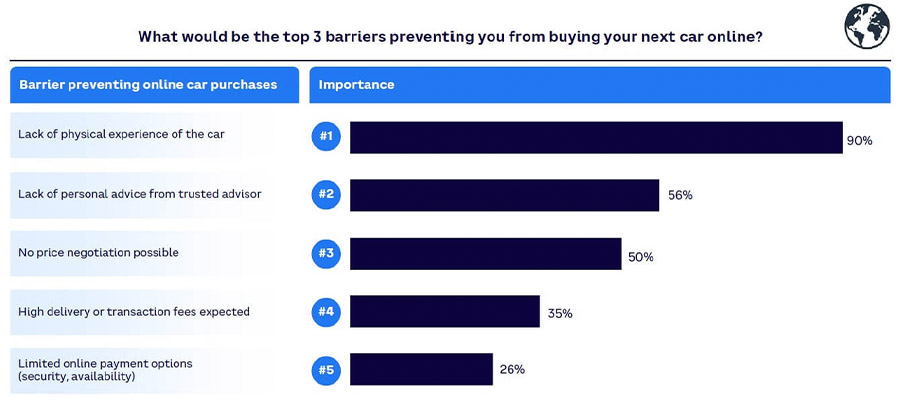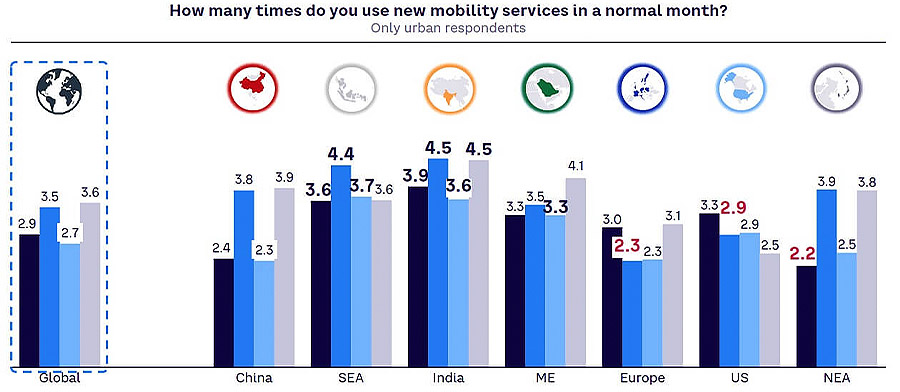
The global automotive market is seeing major change across a number of areas, with consumers in the Middle East at the forefront of many of these developments. That is according to a study from Arthur D. Little.
Based on the views of over 16,000 respondents across 25 countries, including the Middle East region, Arthur D. Little’s ‘Future of Automotive Mobility’ report provides an in-depth analysis of trends and developments in the automotive space, including in areas such as car ownership, electric vehicles, autonomous driving, and new mobility services.
A rundown of the report’s findings shows that, of the many factors that are shaping the future of mobility, Middle East consumers are at the forefront of embracing those. “Our findings highlight a significant readiness to transition to electric vehicles, a favorable attitude towards autonomous driving technologies, and a strong inclination towards digital transactions in car purchases,” explained Alan Martinovich, partner at the global management consulting firm.
Car Ownership
Middle East respondents exhibit a strong preference for car ownership over public transportation. The study reveals that residents in the Middle East have longer commutes and higher annual mileage compared to their European counterparts. On average Middle East residents commute 32 km daily which is 50% higher than Europe, and drive 18,000 km annually, 38% more than Europe.

Source: Arthur D. Little
Shift to Electric Vehicles
While the majority of respondents currently own internal combustion engine (ICE) vehicles, there is significant interest in transitioning to electric drivetrains for future car purchases, specifically Plug-in Hybrid Electric Vehicles (PHEV) and pure Battery Electric Vehicles. Many potential buyers are driven by factors such as lower total cost of ownership, environmental benefits, and concerns about climate change.
However, challenges such as limited range, high up-front costs, and poor charging infrastructure remain.
Further reading: UAE and Qatar in top 10 for electrical vehicle readiness.
Car Purchasing Behavior
The internet has emerged as a primary channel for Middle East residents in the car buying process, encompassing everything from vehicle research to arranging test drives and finalizing purchases.

Source: Arthur D. Little
Despite their strong inclination to buy cars online – among the highest globally with upwards of 53% – Middle East consumers still frequent dealerships, averaging 3.3 visits per purchase, which is also one of the highest rates worldwide.
Autonomous Vehicles
Middle East consumers exhibit a notably higher acceptance of autonomous vehicles compared to respondents in Europe, North East Asia, and the USA with markets like Saudi Arabia exhibiting 3 times higher acceptance than Europe, and UAE exhibiting twice as high as mature markets.
Safety concerns, including risks associated with both human and machine errors, remain the primary obstacles to broader adoption.
Emerging Mobility Trends
Ride-hailing services (Uber, Careem) are a popular (tried by 56%) new mobility option among Middle East residents, with higher usage rates than for traditional car sharing and ride sharing, and especially higher than those in Europe (28%), and the USA (50%).

Source: Arthur D. Little
The study indicates that Middle East residents are inclined to consider new mobility services, with an average of around 15 journeys made using new mobility services monthly, higher than Europe and the United States.
“The study highlights the promising market opportunities for car manufacturers (OEMs) and distributors in the Middle East,” commented Rich Parkin, partner at Arthur D. Little and lead author of the study. “Consumers in the region show a growing interest in car ownership and have high expectations for the latest vehicle technologies and a digital as well as physical buying experiences.”
“To meet the changing preferences of Middle Eastern customers, car manufacturers and distributors need to effectively combine physical and digital experiences.”











